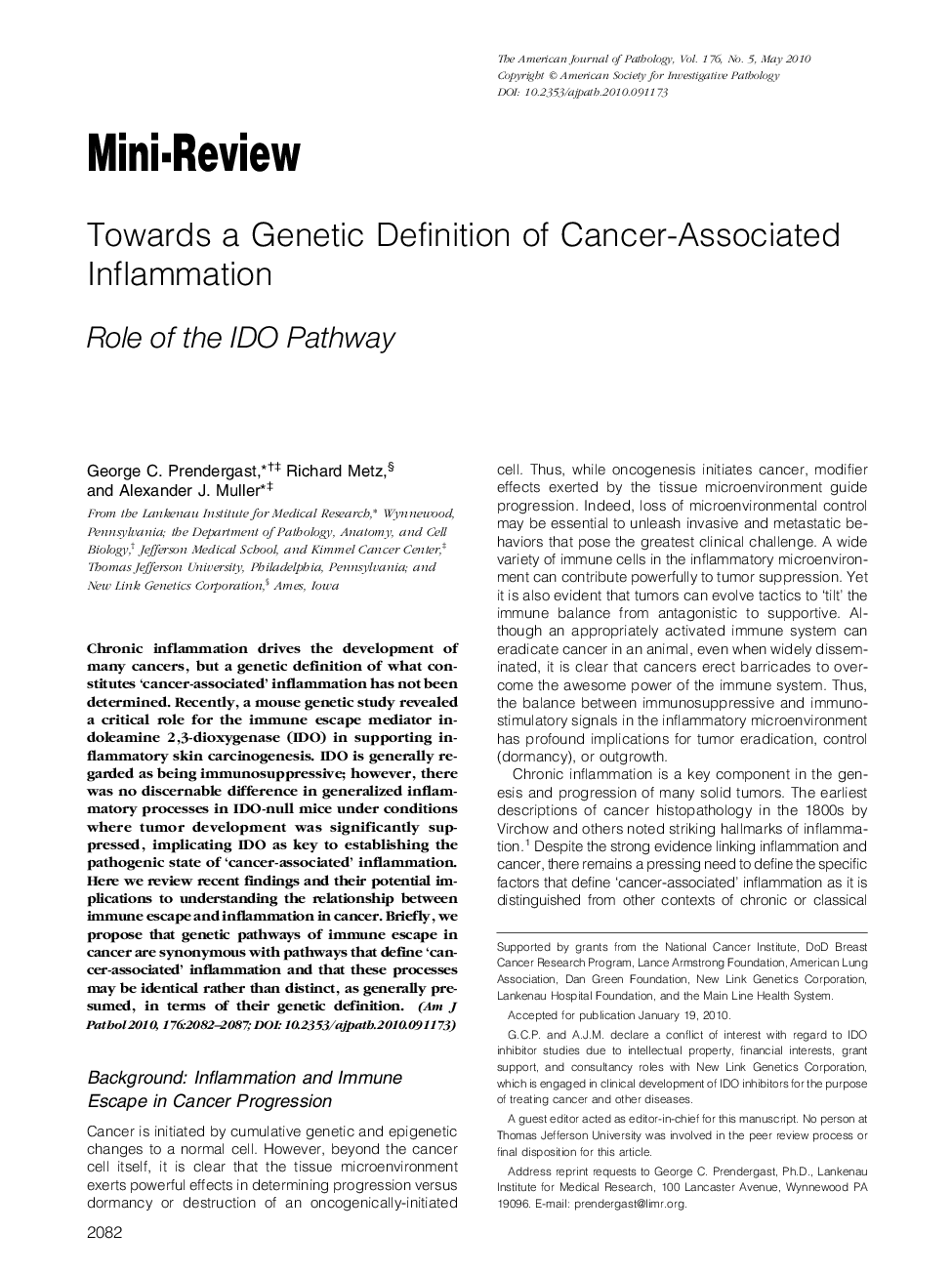| Article ID | Journal | Published Year | Pages | File Type |
|---|---|---|---|---|
| 5935665 | The American Journal of Pathology | 2010 | 6 Pages |
Abstract
Chronic inflammation drives the development of many cancers, but a genetic definition of what constitutes 'cancer-associated' inflammation has not been determined. Recently, a mouse genetic study revealed a critical role for the immune escape mediator indoleamine 2,3-dioxygenase (IDO) in supporting inflammatory skin carcinogenesis. IDO is generally regarded as being immunosuppressive; however, there was no discernable difference in generalized inflammatory processes in IDO-null mice under conditions where tumor development was significantly suppressed, implicating IDO as key to establishing the pathogenic state of 'cancer-associated' inflammation. Here we review recent findings and their potential implications to understanding the relationship between immune escape and inflammation in cancer. Briefly, we propose that genetic pathways of immune escape in cancer are synonymous with pathways that define 'cancer-associated' inflammation and that these processes may be identical rather than distinct, as generally presumed, in terms of their genetic definition.
Related Topics
Health Sciences
Medicine and Dentistry
Cardiology and Cardiovascular Medicine
Authors
George C. Prendergast, Richard Metz, Alexander J. Muller,
